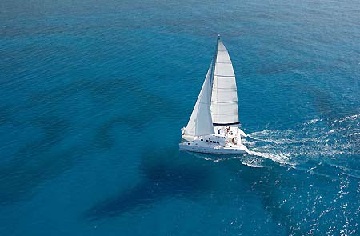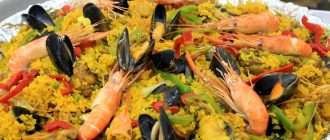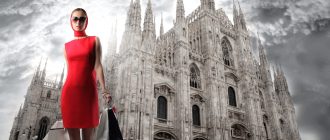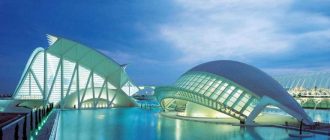Between the pair of them, the port captain and the customs officer drank a bottle of Pernod; though perhaps the complete lack of any common language made conversation difficult and lengthy. But the fact that they had enjoyed themselves was amply borne out by the ribald laughter I heard from the shore as the fisherwomen in the market observed a comic opera when they landed. I was somewhat put out when the chief customs officer informed me later that I had been too hospitable to his junior.

Cedeira is a lovely anchorage; with wooded hills leading down to sandy beaches it is very attractive, like most havens down this coast. The crew of a fishing boat invited me to lunch on fish, bread, and wine and in the evening for a run ashore with them and friends.
They got round the language barrier by introducing me to the local schoolmarm, an attractive senorita of 27 years who spoke French fluently. The patron of the fishing boat had an infectious laugh and knew every girl in the town; I only discovered later that he was married.
One evening I entertained the whole crew aboard Dawn Star and it was obvious that these Spaniards enjoyed themselves. When I went to obtain currency I was accompanied by a well-travelled seaman; the manager specially opened his bank and then asked for 2,5 per cent commission.
He was quickly persuaded that demanding commission was futile and I have never seen money pour forth so rapidly as he grabbed my cheque and shut the bank so fast that he never even attempted to read the now famous but meaningless World Letter of Credit, let alone record anything on it.
The fish caught near here are excellent to eat and are the staple protein food.
The port captain’s adulante asked me if he could bring off a couple of girls, both of whom could speak English. This he did one evening and I quickly found that they had certainly mastered the language: wideeyed they said ‘yes’ to every question I asked!
The alcohol a briller which I had bought in Quimper was very expensive and its effectiveness in preheating the stove worked in inverse ratio to its cost.
The days passed quickly and the next stop was Corufia, which I never wish to see again; it was hot and the sea not only looked oily but was. Luckily I did not have to lower the dinghy. I moored off the yacht club close to another English yacht which had taken twenty-six days to sail direct from Cowes with four aboard. With three radios, two sextants, and a library of navigation books they were bound for Durban, a port which they might have seen at the end of 1966 at that rate of progress. Their head became blocked on the third day out and they could not move the sea-cocks; of all places it was situated in the galley, which was forward. This was not their only problem, for the owner asked my advice on his mainsail and it was apparent that although the material was good, it needed to be completely restitched. They had no needles or thread aboard, so perhaps it was because they felt they had to find a Woolworth’s store that the owner and his wife sailed back to England the next day.
She was one of over forty yachts I encountered before I had cleared Las Palmas which gave up their ocean voyages for one reason or another; either the yachts were unsuitable or badly fitted out, or the owners ran out of money.
Banco Pastor said they had no mail for me, so I waited with my temper becoming shorter as I called daily. On the third day my mail was found, having been lying there a week. Meanwhile, one morning one of my two-inch terylene I zo-feet warps was filched; I believe that the ‘baddies’ in Spain fear two things, not the less being La Guarda. Anyway I got the warp back very quickly.
Corufia was the only place at which I had difficulty in obtaining kerosene. No one at the yacht club could help me so I commandeered the assistance of a Frenchspeaking official at the bank; after two hours he located a man in a back street, but he had run dry and would have no more stock until the morning.
I was actually able to collect some stores sent out from England by post, but on asking to have them in bond for a ship to which they had been addressed, I was told that approval in writing would probably take three to four months and the official advised me to pay the import duty – about ten shillings – for some lamp glasses.
Wherever I went in Spain I was asked to fill in a simple card asking for the usual ship’s particulars of how many torpedo tubes I had aboard and the number of guns comprising my main armament! This was always a simple formality that took a minute or so, but when the fifth official arrived for the same information at Corufia I lost my temper and refused to divulge any more. A sixth did not call.
And so to Corme to spend a whole day cleaning off the filth of Corufia.
Camarinas is another lovely Ria and I landed for shopping on July I oth; the inhabitants were most friendly and cheerful though very poor, and few wore shoes. A boy led me through a maze of alleys to the butcher and I observed with distaste three dogs sleeping outside in the hot sun with myriads of flies circling their privates. Inside the shop-cum-slaughter-house I saw two carcasses slung from the roof, and the head of a steer eyed me from the counter. With the usual language difficulties I pointed to various parts of my own body amid much laughter from the locals, and the senora in a blood-bespattered apron took a deft swipe with her knife and landed just 500 grammes neatly on to the weighing machine; I allowed her to weigh the black covering of a hundred or more flies with it, and quickly fled outside before the stench overcame me. The meat was delicious and tender.
This coast is magnificent for cruising with many perfect harbours which are generally fishing ports; and so I sailed south past Finisterre to Muros.
At St Eugenia de Riviera I was fortunate to fall in with a man who spoke English, and he turned out to be a taxi-driver; as he made various trips into the country I had some interesting drives and met some farmers and their families in their homes. One of these drives was rather lengthy and I was not sure whether he was burning out the clutch or cooking old sardines on the engine; the smell was about the same and gave an excuse for more cognac and wine. An enjoyable evening was spent with my new-found friend at his home: we were the only men, but every fifteen minutes he brought in different girls while we sipped cognac and ate biscuits; I had to carry on an animated conversation switching from English to French or German as people of somewhat mixed parentage were introduced.
There is a small harbour at Sangenjo with an excellent yacht club, where the people sailed dinghies. A fair number spoke either English or French.
Guarding the Ria Vigo entrance lie the Islas Cies, and I anchored in the lee, eighty yards from the sandy shore, close to a French yacht. These islands are a kind of national park for campers from Vigo, and are very lovely. With a German and his Spanish wife from Vigo and the crew of Men-Brial, I walked to the top of one of them and over a lot of it; the bistros are rather far apart but we made up for their lack over dinner aboard the Frenchman, and conversed in a mixture of four languages. I got little sleep that night, for the wind screamed through the rigging and the cable was bar taut. In the morning I found a fine layer of sand over everything – food, carpet, bilge – everywhere.
Entering Vigo yacht harbour, I was surprised to see three British ensigns, and soon I was chatting to Chris Irons who ran his yacht Athene on charter. We had a lot of fun together and saw a greal deal of Frank Steinbriigger, the German whom I had met over at Gies.
The Commodore headed a party from the Vigo yacht club and presented me with the burgee of their club before I sailed to Panjon at the entrance to the Ria. While this is an attractive village, I could never recommend anchoring off it; owing to a slight current Dawn Star lay broadside on to the swell and rolled abominably all night. As there are various rocky patches in the bay I had to wait until dawn before motoring over to Bayona, which has a perfect anchorage.
Here I varnished all the upper deck brightwork only to have the port captain sit on it in spite of my protestations. He did have a sense of humour!
I also antifouled the ship’s bottom by driving her ashore an hour after high water and letting her lie over on the sand, subsequently painting the other side on the following tide.
For the past ten days Frank Steinbriigger had been trying to obtain a parcel of glass globes for my saloon lamps which had been sent from England, and he came down from Vigo finally to tell me that they would be delivered the next day. By now, I had spent about twice their value – fifteen shillings – in telephone calls, and far more in time.
Unfortunately, they did not turn up and when I phoned him he said that someone in Corufia had forgotten to send them on; however, if I sent a further 1 15 pesetas it could be arranged for them to be sent to the Canaries for me. This was a case of good money after bad, so I wrote off asking my agent to send a new set of glasses direct to Las Palmas. I felt this would be more positive.
Antonio, a local boatman, helped me to water the ship late that afternoon. We obtained the water from his special fountain and I felt somewhat stirred as we walked back to the quay through the crowds of people who made way for us. So, at 1900 on July 27th I motored out to sea and set all sail to the south-southwest with the intention of making for Madeira.
But it was not to be. The wind rose around 21 oo, so I reduced to one genoa and got very wet as sloshers rolled aboard into the cockpit. Around midnight I experienced a sharp pain in my right eye and for two hours I struggled to wash something out. By 0200 I was in extreme pain and decided to obtain help as quickly as possible. Leixoes lay about 45 miles to the south-east, so I laid a course for there and nearly piled up on the sunken breakwater protecting the entrance. The owner of a large motor-yacht asked if I needed assistance and on my explaining my predicament, he sent off his crewman who knew exactly where I could moor in front of the Atlantic Yacht Club. I was nearly blind as we motored up the harbour at full speed. The port authorities waived all formalities and a maritime police officer himself took me into Oporto where, at considerable trouble, he sent me off in a taxi to an ophthalmic surgeon, as he could not see what was wrong with me. Dr Gomez soon found a tiny sharp stone and removed it.
He came aboard that evening and then drove me out to his house for a small party which I thoroughly enjoyed; on returning me to the yacht club soon after midnight he kindly presented me with a bottle of port.
The next day was spent at Leixoes quietly recovering and catching up on some sleep. The yacht club members were most hospitable and many came aboard, but the basin was unfortunately very hot owing to the surrounding high concrete walls.
Clearing harbour at 09:45 in the morning, the entire fleet of Portuguese yachts cheered me on my way; they were starting the annual Vigo race at 11:00. By 1730 there was only a slight haze of land on the port quarter, the last I was to see for eight days.




